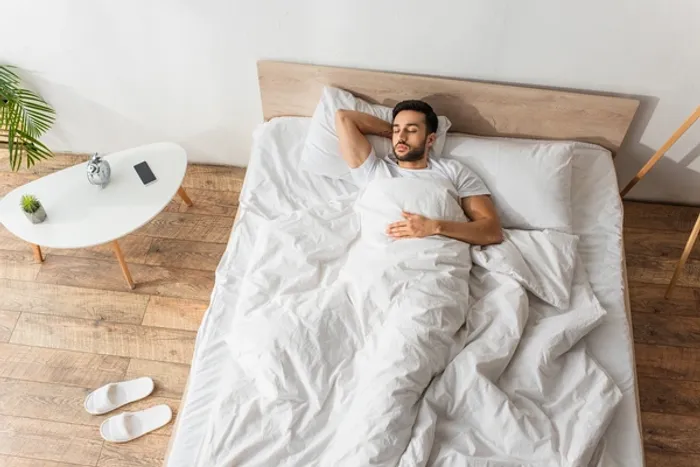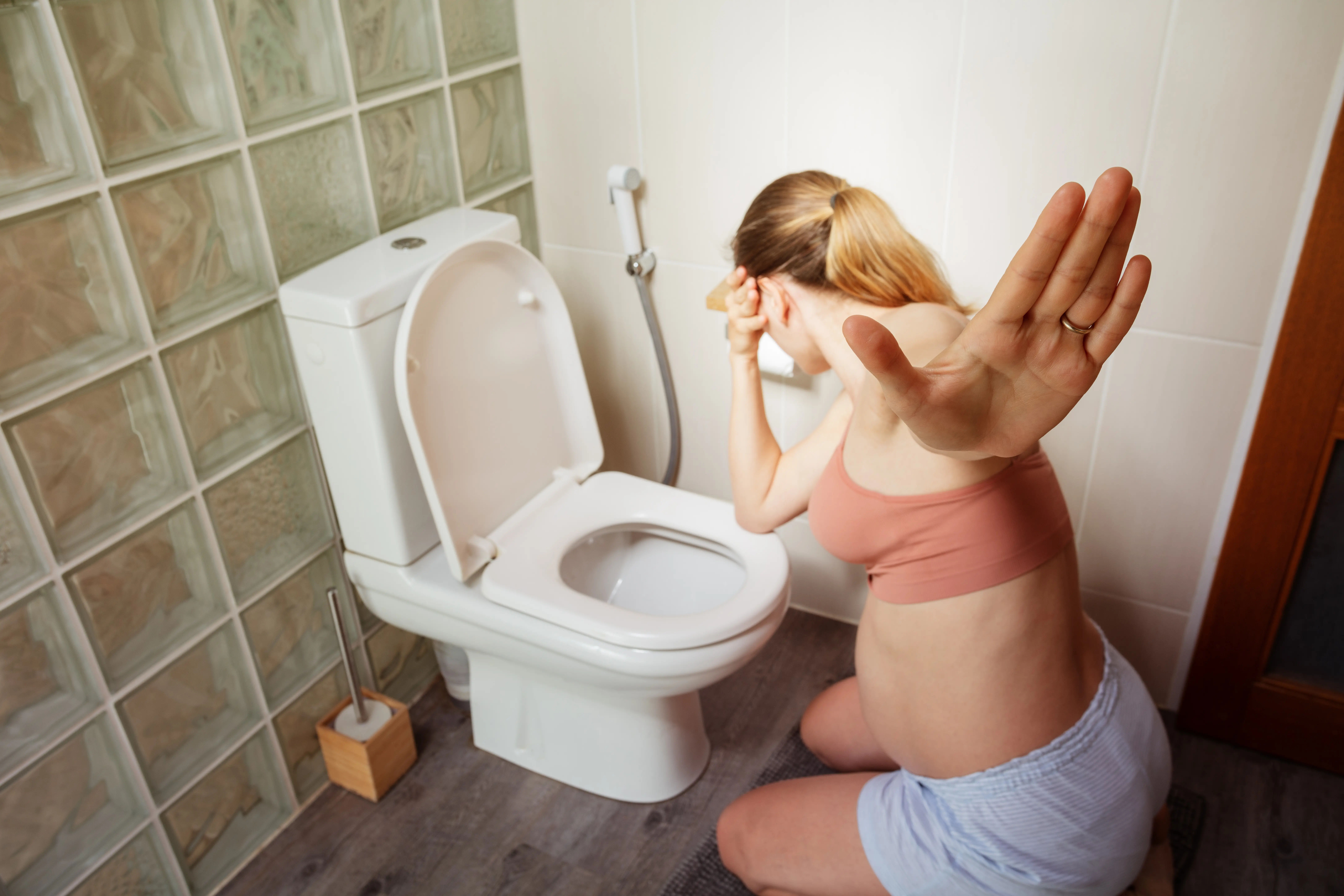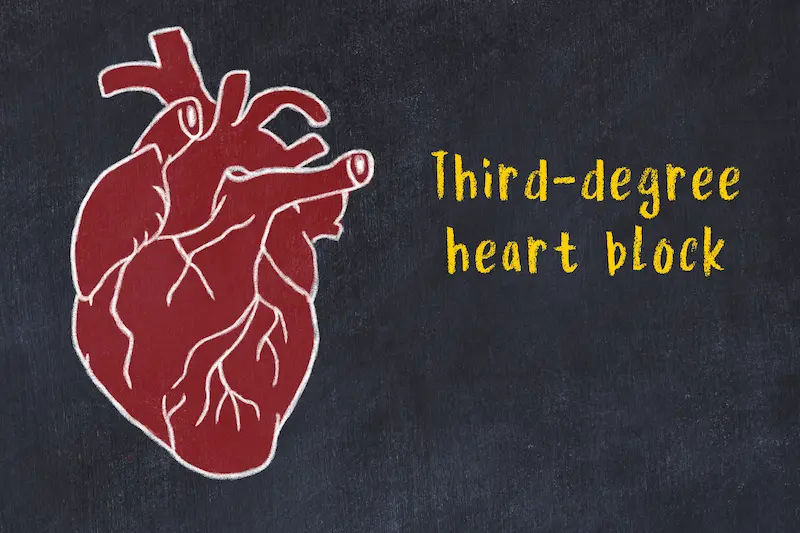The Impact of Sleep on Men's Well-Being: A Complete Guide
Explore how sleep affects men’s physical, mental, and emotional well-being, along with tips to improve sleep quality for better health.


Introduction
Ever hit the snooze button one too many times, promising yourself you’ll "catch up" later? For many men, sleep is often treated as a luxury, not a necessity. We prioritise work, family, and fitness, pushing rest to the bottom of the to-do list. But what if the key to unlocking peak physical performance, sharp mental clarity, and robust health wasn't another supplement or workout, but a good night's sleep? The impacts of sleep on men's well-being are profound and far-reaching, influencing everything from hormone levels to heart health. This guide dives deep into the science behind sleep, exploring how it shapes your body and mind, the unique sleep challenges men face, and providing actionable strategies to help you harness the transformative power of rest. It's time to stop burning the candle at both ends and start investing in the foundation of your health.
The Science of Sleep: More Than Just Rest
Sleep isn't a passive state of unconsciousness; it's an active and critical physiological process. Your brain and body are working hard behind the scenes, performing essential maintenance and repair. Understanding this process is the first step to appreciating its impact.
During sleep, you cycle through two main phases: Non-Rapid Eye Movement (NREM) and Rapid Eye Movement (REM). NREM sleep, which consists of three stages, is crucial for physical restoration, tissue repair, and growth hormone release. Deep sleep (Stage 3 NREM) is when your body truly recovers. REM sleep, often associated with dreaming, is essential for cognitive functions; it's when your brain processes emotions, solidifies memories, and learns new information. A full night's sleep allows you to complete multiple cycles of NREM and REM, ensuring both your body and mind get the rejuvenation they need. Skimping on sleep disrupts this delicate cycle, leading to the negative impacts we'll explore next.
The Physical Reboot: How Sleep Fuels a Man's Body
Hormone Harmony: Testosterone, Growth Hormone, and Cortisol
This is where the impacts of sleep on men become incredibly direct. Your body is a hormone-production factory, and sleep is its prime operating shift. The majority of your daily testosterone, the primary male sex hormone critical for muscle mass, bone density, and libido, is released during sleep. Studies show that sleeping only 5-6 hours a night can significantly reduce testosterone levels, an effect equivalent to aging 10-15 years.
Similarly, deep sleep triggers the pulse of human growth hormone (GH), which is vital for muscle repair, fat metabolism, and overall physical rejuvenation. Conversely, sleep deprivation elevates cortisol, the body's primary stress hormone. Chronically high cortisol breaks down muscle tissue, promotes fat storage (particularly abdominal fat), and suppresses immune function. The sleep and hormone connection is undeniable: prioritise rest to keep your endocrine system in peak condition.
The Heart of the Matter: Sleep and Cardiovascular Health
Your heart gets a much-needed break during sleep. Blood pressure and heart rate drop, allowing the cardiovascular system to recover from the day's stresses. Consistent, quality sleep helps regulate stress hormones and inflammation, both key players in heart disease. The reverse is also true: chronic sleep deprivation is linked to an increased risk of hypertension, heart attack, and stroke. For men, who are statistically at a higher risk for cardiovascular issues early in life, this is a critical impact that cannot be ignored.
Muscle Recovery and Athletic Performance
Proper recovery is key to achieving peak fitness.
The Testosterone Connection
For the active man, sleep is the most powerful legal performance enhancer available. It's not just about the hours you log in the gym; it's about how you recover afterward. During deep sleep, blood flow to muscles increases, delivering oxygen and nutrients that repair microscopic damage from exercise. This is synergised by the release of GH and testosterone. Without adequate sleep, your gains are fundamentally limited. Reaction times, accuracy, endurance, and even motivation all plummet with poor sleep, directly impacting your performance.
Immune System Defense: Your Nightly Shield
Think of your immune system as an army. During sleep, you produce and deploy key immune cells like cytokines, T-cells, and antibodies. These soldiers fight off infections and inflammation. When you're sleep-deprived, this production plummets. Research has shown that men who sleep less than 7 hours are nearly three times more likely to get sick after being exposed to a common cold virus than those who sleep 8 hours or more. Consistent sleep is your best defense against common illnesses and helps your body mount a more effective response to vaccines.
Consult a Sleep Medicine Specialist for the best advice
The Mental Gym: Sleep's Role in Brain Power and Mood
A good night’s rest is essential for mental fitness.
Sharpening the Mind: Memory, Learning, and Focus
A well-rested brain is an efficient brain. During sleep, and particularly during REM sleep, your brain is busy consolidating memories, sorting through the day's events, strengthening important neural connections, and discarding irrelevant information. This process is essential for learning new skills, whether it's a sales presentation or a new golf swing. Sleep deprivation disrupts this, leading to brain fog, poor concentration, and impaired judgment. The impact on work performance and safety, especially when driving or operating machinery, can be severe.
Emotional Regulation: Why Sleep Deprivation Leads to Irritability
Ever notice you're more short-tempered, anxious, or emotionally volatile after a bad night's sleep? There's a scientific reason for that. Sleep deprivation dampens activity in the prefrontal cortex, the part of your brain responsible for rational thought and impulse control. Simultaneously, it amplifies activity in the amygdala, the brain's emotional center. This neural seesaw effect means you're more likely to overreact to minor stressors. For men who may already struggle with expressing emotions healthily, poor sleep can exacerbate issues like irritability and mood swings.
The Sleep-Stress Cycle
This creates a vicious cycle. Poor sleep increases stress and anxiety. That heightened anxiety, in turn, makes it harder to fall and stay asleep the next night, further compounding the problem. Breaking this cycle is fundamental to improving both mental and physical well-being.
Silent Threats: Men's Specific Sleep Disorders
Some sleep disorders uniquely affect men, often going unnoticed.
Obstructive Sleep Apnoea: The Overlooked Epidemic in Men
This is a critical men's health issue. Obstructive Sleep Apnoea (OSA) is characterised by repeated pauses in breathing during sleep due to a collapsed airway. It is significantly more common in men, particularly those who are overweight, have a large neck circumference, or smoke. The classic sign is loud, persistent snoring followed by gasping or choking sounds.
The impacts of untreated OSA are severe: it fragments sleep (preventing deep and REM stages), drastically lowers oxygen levels, strains the heart, and devastates sleep quality. It is a major contributor to hypertension, heart disease, and daytime fatigue. Many men write off their exhaustion to age or stress, never realising a treatable condition is the root cause. If you snore loudly and feel exhausted despite a full night in bed, consult a doctor online with Apollo24|7 for a preliminary screening. They can guide you on the next steps, which may involve a sleep study.
Insomnia and Its Link to Modern Lifestyles
The inability to fall or stay asleep is another common plague. For men, insomnia is often linked to high-stress jobs, irregular work schedules, excessive screen time before bed (which suppresses melatonin), and the use of stimulants or alcohol. While alcohol may help you fall asleep initially, it severely disrupts sleep architecture later in the night.
Building Better Sleep: Actionable Strategies for Men
Improving your sleep isn't about a single magic trick; it's about building consistent habits, known as sleep hygiene.
Optimising Your Sleep Environment
- Cool, Dark, and Quiet: Aim for a room temperature of around 65°F (18.3°C). Use blackout curtains and consider a white noise machine to block out disturbances.
- Invest in Your Bed: A supportive mattress and comfortable pillows are non-negotiable.
Crafting a Powerful Pre-Sleep Routine
- Digital Sunset: Power down all screens (phones, TVs, laptops) at least 60 minutes before bed. The blue light emitted is a major sleep disruptor.
- Wind Down: Read a book (physical, not digital), listen to calming music, practice light stretching, or meditate.
- Consistency is Key: Go to bed and wake up at the same time every day, even on weekends. This reinforces your body's natural circadian rhythm.
Diet and Exercise: Their Role in Sleep Quality
- Avoid Stimulants: Limit caffeine and nicotine, especially in the afternoon and evening.
- Watch the Evening Drink: Avoid alcohol close to bedtime.
- Time Your Meals: Don't go to bed too hungry or too full.
- Exercise Regularly: Daily physical activity promotes deeper sleep, but try to finish intense workouts at least 2-3 hours before bedtime.
When to Seek Help: Don't Sleep on Your Health
While improving sleep hygiene can solve many issues, some problems require professional intervention. You should consider seeking help if:
- You consistently have difficulty falling or staying asleep.
- You snore loudly, gasp, or choke in your sleep.
- You experience excessive daytime sleepiness that affects your daily life.
- Your partner notices you stop breathing during sleep.
If your sleep problems persist beyond two weeks despite making lifestyle changes, consult a doctor online with Apollo24|7 for further evaluation. They can help identify underlying conditions like sleep apnoea, anxiety, or hormonal imbalances. For certain diagnoses, Apollo24|7 offers convenient home collection services for tests like testosterone levels or thyroid function, which can be related to sleep quality.
Get Your Health Assessed
Conclusion
The evidence is clear: sleep is not a passive state but an active pillar of men's health. Its impacts resonate through every system in your body, from the hormonal engines that define your vitality to the cognitive functions that dictate your daily performance. Treating sleep as an optional luxury is a costly mistake that undermines your fitness goals, your professional edge, and your long-term well-being. By understanding the profound connection between sleep and health, recognising the signs of disorders like sleep apnoea, and committing to the actionable strategies of good sleep hygiene, you can transform your rest into your greatest asset. Stop viewing time in bed as time wasted and start seeing it for what it truly is: a critical investment in a stronger, sharper, and healthier you. Your future self will thank you for it.
Consult a Sleep Medicine Specialist for the best advice
Consult a Sleep Medicine Specialist for the best advice

Dr. Shiba Kalyan Biswal
Pulmonology Respiratory Medicine Specialist
18 Years • MBBS,MD,DM(AIIMS Delhi)
Gurugram
APOLLO SUGAR CLINICS GURUGRAM, Gurugram

Dr. Suresh G
General Physician/ Internal Medicine Specialist
25 Years • MBBS, MD
Bangalore
Apollo Clinic Bellandur, Bangalore
(225+ Patients)

Dr. Arjun Ramaswamy
Pulmonology Respiratory Medicine Specialist
9 Years • MD (RESPIRATORY MEDICINE), DM (PULMONARY MEDICINE, CRITICAL CARE AND SLEEP MEDICINE)
Mumbai
Apollo Hospitals CBD Belapur, Mumbai
(75+ Patients)
Dr Srinivas Rajagopala
Pulmonology Respiratory Medicine Specialist
20 Years • MBBS, MD (Int Med), DM (Pul & Crit Care), Fellowship in Lung Transplantation (Toronto)
Chennai
Apollo Cancer Speciality Hospital, Teynampet, Chennai

Dr. Priya Sharma
Pulmonology/critical Care Specialist
9 Years • DM (PULMONARY MEDICINE), DNB, EDARM, MNAMS
Delhi
Apollo Hospitals Indraprastha, Delhi
Consult a Sleep Medicine Specialist for the best advice

Dr. Shiba Kalyan Biswal
Pulmonology Respiratory Medicine Specialist
18 Years • MBBS,MD,DM(AIIMS Delhi)
Gurugram
APOLLO SUGAR CLINICS GURUGRAM, Gurugram

Dr. Suresh G
General Physician/ Internal Medicine Specialist
25 Years • MBBS, MD
Bangalore
Apollo Clinic Bellandur, Bangalore
(225+ Patients)

Dr. Arjun Ramaswamy
Pulmonology Respiratory Medicine Specialist
9 Years • MD (RESPIRATORY MEDICINE), DM (PULMONARY MEDICINE, CRITICAL CARE AND SLEEP MEDICINE)
Mumbai
Apollo Hospitals CBD Belapur, Mumbai
(75+ Patients)
Dr Srinivas Rajagopala
Pulmonology Respiratory Medicine Specialist
20 Years • MBBS, MD (Int Med), DM (Pul & Crit Care), Fellowship in Lung Transplantation (Toronto)
Chennai
Apollo Cancer Speciality Hospital, Teynampet, Chennai

Dr. Priya Sharma
Pulmonology/critical Care Specialist
9 Years • DM (PULMONARY MEDICINE), DNB, EDARM, MNAMS
Delhi
Apollo Hospitals Indraprastha, Delhi
More articles from General Medical Consultation
Frequently Asked Questions
How does sleep specifically affect testosterone levels in men?
The majority of the body's daily testosterone production occurs during deep, restorative sleep. Sleep deprivation disrupts the natural pulse of hormone release, leading to significantly lower testosterone levels. This can result in reduced libido, decreased muscle mass, low energy, and mood changes.
What is the best sleep position for men's health?
Side sleeping, particularly on the left side, is often recommended. It can help reduce snoring and symptoms of sleep apnoea by keeping the airways more open compared to back sleeping. It's also beneficial for digestion and may improve circulation.
I snore loudly. Does that always mean I have sleep apnoea?
While not everyone who snores has sleep apnoea, loud, persistent snoring—especially when accompanied by gasping, choking sounds, or daytime fatigue—is a primary symptom of Obstructive Sleep Apnoea. It's a key sign that you should discuss with a healthcare provider.
Can I 'catch up' on lost sleep during the weekend?
While sleeping in on weekends can help reduce your sleep debt, it doesn't fully reverse the negative metabolic and cognitive impacts of consistent weekday sleep deprivation. It also disrupts your circadian rhythm, making it harder to wake up on Monday. Consistency is a far healthier strategy.
How long before bed should I avoid screens?
Aim for at least 60 minutes before your target bedtime. The blue light emitted from phones, tablets, and computers suppresses the production of melatonin, the hormone that signals your brain it's time to sleep, making it harder to fall asleep.





 Ayurvedic Uses and Benefits.webp)
